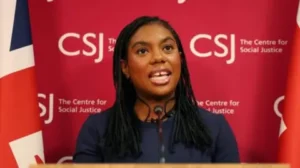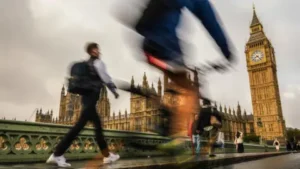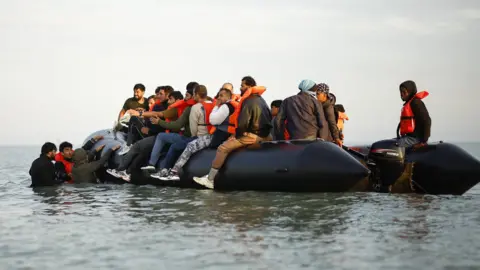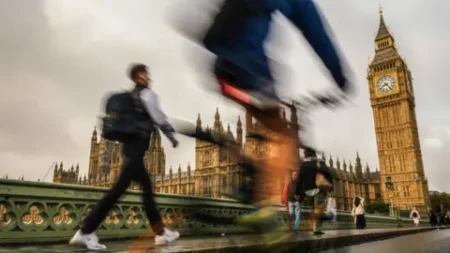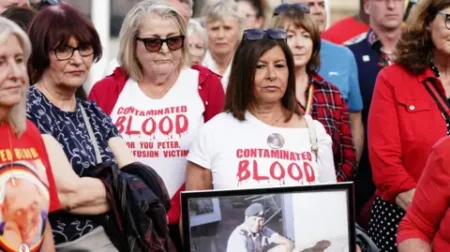The UK government is set to target smugglers involved in small boat crossings as part of a new sanctions regime aimed at disrupting the ongoing crisis of illegal immigration across the English Channel. Scheduled for announcement in the coming days, this initiative, which has been interpreted as a world-first approach, will specifically name gang leaders and companies that provide equipment for these perilous journeys.
Prime Minister Sir Keir Starmer has emphasized the significance of these sanctions in his broader plan to “smash the gangs” that facilitate these crossings, an issue that has drawn severe criticism and mounting pressure on the government to take decisive action. The proposed sanctions strategy was initially unveiled in January, marking the government’s commitment to combating people-smuggling. However, the announcement will identify a specific group of individuals whose assets will be frozen, alongside travel bans that will prevent them from entering the UK or access its financial system.
Foreign Secretary David Lammy stressed the urgency of the matter, indicating that these criminal organizations have long exploited vulnerable individuals seeking safety, all while profiting from their suffering. The impending sanctions target not only those who provide small boats and fake documents but also “middlemen” who process transactions through informal money transfer networks, commonly utilized by smugglers.
Starmer, since his election campaign last year, has pledged to tackle the rising tide of illegal immigration that has seen over 20,000 individuals crossing the English Channel in just the first half of this year alone—a staggering increase of nearly 50% compared to the previous year. In a bid to tackle the crisis, he recently inked a “one in, one out” agreement with France, which allows for the return of unauthorized migrants to France in exchange for a similar number of legal asylum-seekers, subject to security checks.
Contrasting views have emerged from opposition figures regarding the effectiveness of the new sanctions. Shadow Home Secretary Chris Philp has raised concerns, claiming that merely freezing bank accounts globally would not effectively eliminate the crossings, referring to it as an inadequate response to an urgent safety crisis facing women and girls.
Moreover, commentary from Reform UK leader Nigel Farage follows a protest outside an Essex hotel accommodating asylum seekers, where tensions escalated and violence erupted, prompting police intervention. Farage described the demonstrators as “genuinely concerned families” expressing dissatisfaction towards the handling of immigration issues. He warned of a potential surge in civil disobedience, voicing his belief that public frustration is escalating to alarming levels.
In light of traditional law enforcement methods failing to confront the trafficking problem effectively, the government’s new sanctions aim to disrupt the financial and operational aspects of these smuggling rings. Home Secretary Yvette Cooper characterized the sanctions as a pivotal step in their fight against criminals who profit from human hardship, asserting that the strategy will target the very assets and operations essential for these gangs to function.
This newly adopted approach reflects the UK government’s response to an urgent humanitarian issue that touches on not only immigration laws but the broader implications for public safety, community tensions, and the political landscape surrounding asylum and migration policies. It showcases the complex dynamics between government action, public sentiment, and the ongoing struggles faced by migrants seeking refuge from violence and persecution in their home countries, underlining the urgent need for robust solutions that balance compassion with security.
As the government prepares for the official announcement, it will be essential to observe both the immediate impacts of these sanctions on smuggling operations and the longer-term implications for humanitarian protections and community relations in the UK. The balance between maintaining border security and upholding ethical responsibilities towards individuals in desperate circumstances is a challenge that continues to evolve within British politics.

